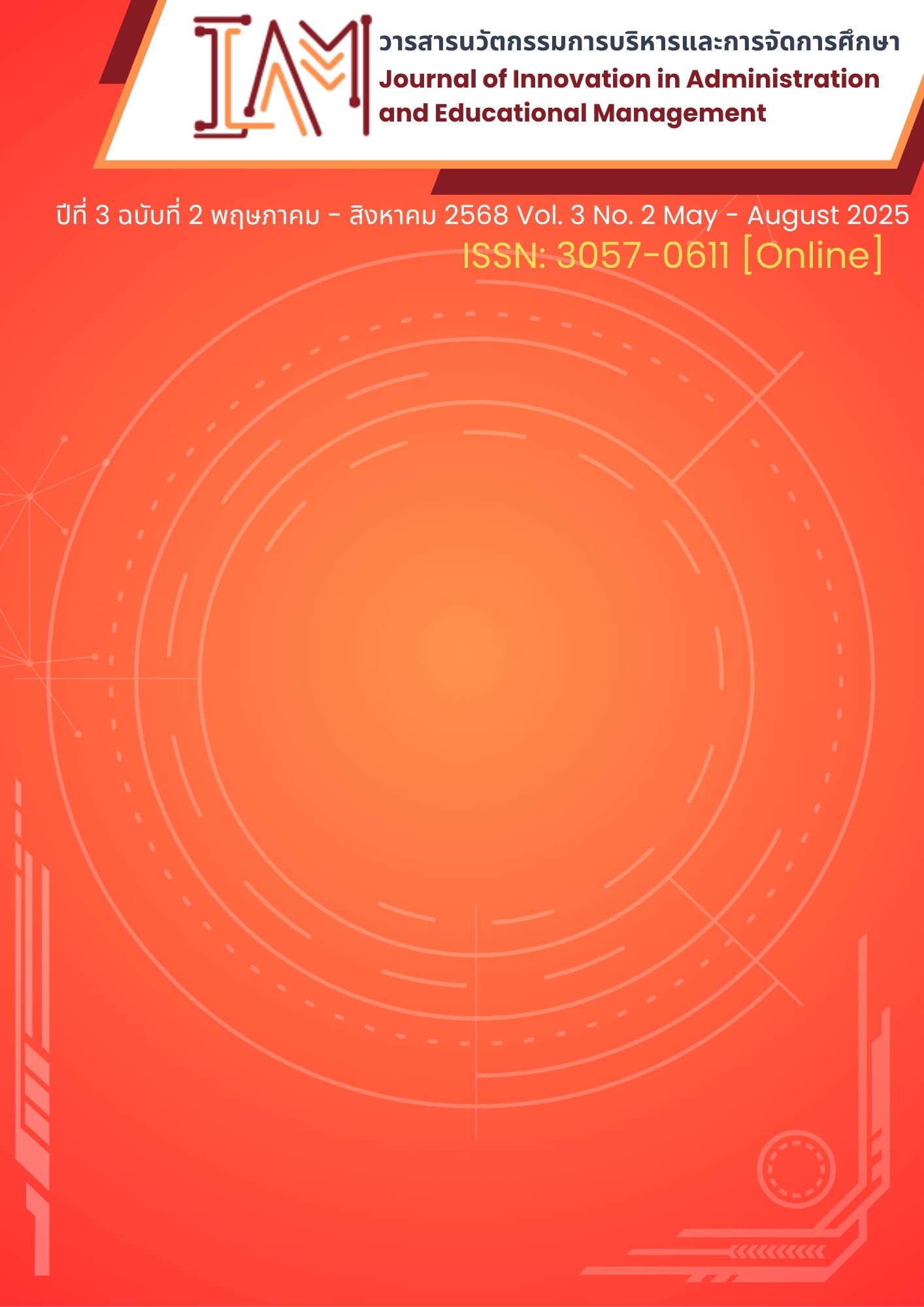A Study on Problems in Developing Essential Skills for School Administrators in the 21st Century of Schools under the Bangkok Metropolitan Administration Using Quality Control Tools and 5W1H Technique
คำสำคัญ:
School administrators, Essential skills, 21st Century, Quality control tools, the 5W1H Techniqueบทคัดย่อ
The objective of this study was to investigate problems in developing essential skills for school administrators in the era when technology and society are changing rapidly. Quality control tools and the 5W1H Technique were used for problem analysis. The data in this qualitative research were collected by using in-depth interviews with 437 school administrators of schools in the Central Bangkok Group under the Bangkok Metropolitan Administration.
The results revealed that the main problems in developing essential skills for school administrators included the lack of effective leadership skills, insufficient technological and innovation competencies, and poor communication skills are key challenges. It is recommended that school administrators adapt and enhance their skills in leadership, communication, and the use of digital technology to meet the demands of the modern era. It is also suggested that school administrators adapt and develop skills related to leadership, communication, and the use of digital technology. Moreover, they should also develop a network for skill development cooperation. These recommendations can be used as the guidelines for developing essential skills for school administrators in the 21st century.
Downloads
เอกสารอ้างอิง
Ainscow, M., & Sandill, A. (2010). Developing Inclusive Education Systems: The Role of Organizational Cultures and Leadership. International Journal of Inclusive Education, 14(4), 401 - 416. https://doi.org/10.1080/13603110802504903.
Aphichit et al., (2021). Quality Control and Loss Reduction in the Front Side Fender Model Assembly Process Using Poka-Yoke Techniques. Rajamangala University of Technology Phra Nakhon (RMUTP) Research Journal, 15(2), 103 - 117.
Bush, T. (2008). Leadership and Management Development in Education. London: SAGE Publications Ltd.
Fullan, M. (2014). The Principal: Three Keys to Maximizing Impact. Hoboken , NJ: Jossey-Bass Inc Pub.
Fullan, M. (2001). Leading in a Culture of Change. Retrieved January 20, 2025, from https://www.csus.edu/indiv/j/jelinekd/edte%20227/fullanleadinginacultureofchange.pdf
Hargreaves, A., & Fullan, M. (2012). Professional Capital: Transforming Teaching in Every School. New York, NY: Teachers College Press.
Kotter, (1996). Leading Change. Boston: Harvard Business School Press.
Leithwood, K., & Riehl, C. (2003). What We Know About Successful School Leadership. Retrieved January 22, 2025, from https://olms.ctejhu.org/data/ck/file/What_we
_know_about_SchoolLeadership.pdf
Leithwood, K., et al., (2004). How Leadership Influences Student Learning. Retrieved January 22, 2025, from https://wallacefoundation.org/sites/default/files/2023-07/How -Leadership-Influences-Student-Learning.pdf
Ishikawa, K. (1985). What is Total Quality Control the Japanese Way. New Jersey: Prentice Hall Direct.
Marzano, R. J., et al., (2005). School Leadership That Works: From Research to Results. Alexandria, VA: Association for Supervision and Curriculum Development.
Mongkol, K. (2018). Application of Analytic Hierarchy Process to Select Quality Improvement for Defect Reduction Projects: A Case Study of Air Tank Manufacturer. Journal of Engineering RMUTT, 16(2), 71 - 83.
Senge, P. M. (2006). The Fifth Discipline: The Art & Practice of the Learning Organization. New York: Doubleday.
UNESCO. (2017). Education for Sustainable Development Goals: Learning Objectives. United Nations Educational, Scientific and Cultural Organization. Retrieved January 28, 2025. from https://unesdoc.unesco.org/ark:/48223/pf0000247444
UNESCO. (2016). Teachers in the Digital Age: Developing Skills for 21st Century School Leadership. Paris: UNESCO. Retrieved January 28, 2025. from https://unesdoc.unesco.org/ark:/48223/pf0000250117_eng
ดาวน์โหลด
เผยแพร่แล้ว
รูปแบบการอ้างอิง
ฉบับ
ประเภทบทความ
สัญญาอนุญาต
ลิขสิทธิ์ (c) 2025 วารสารนวัตกรรมการบริหารและการจัดการศึกษา

อนุญาตภายใต้เงื่อนไข Creative Commons Attribution-NonCommercial-NoDerivatives 4.0 International License.






